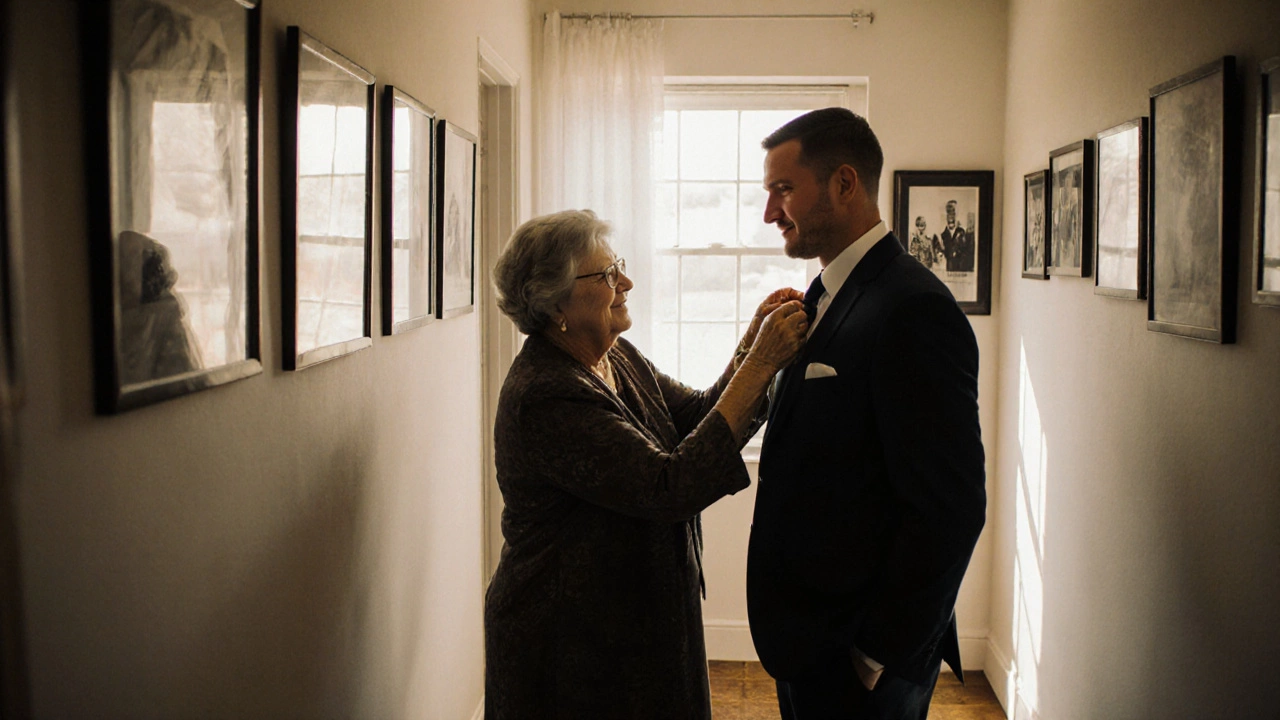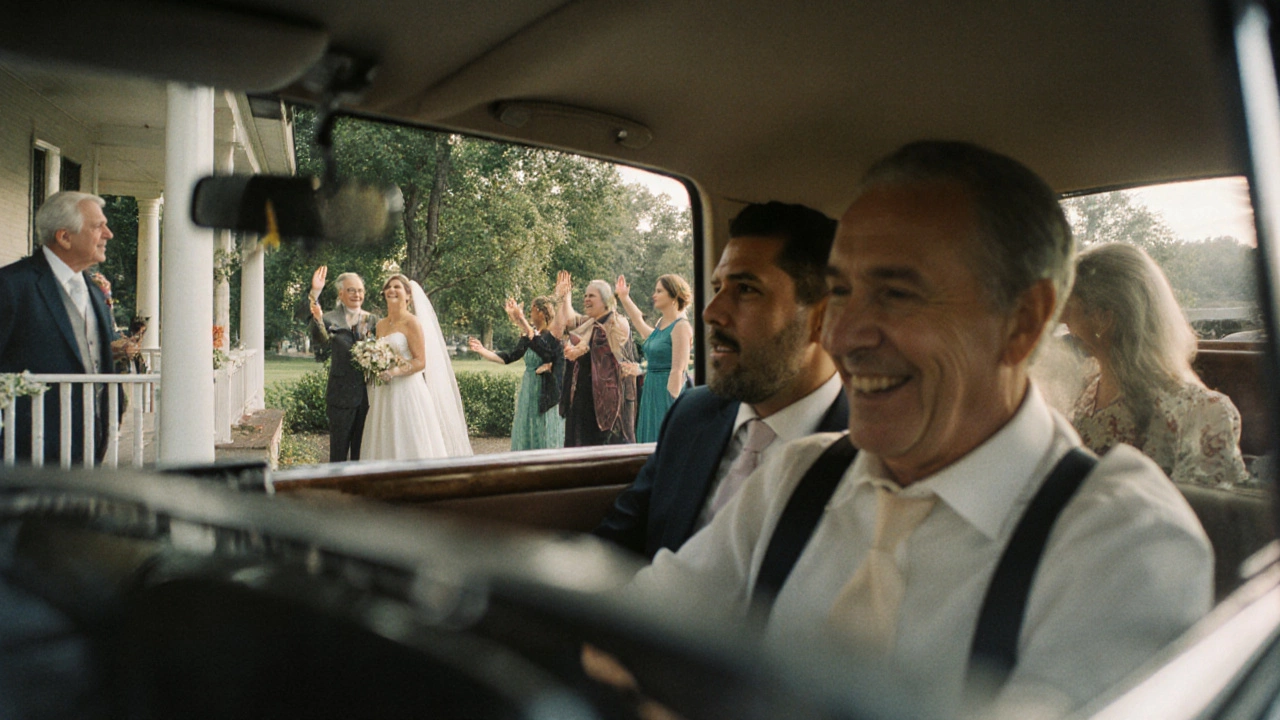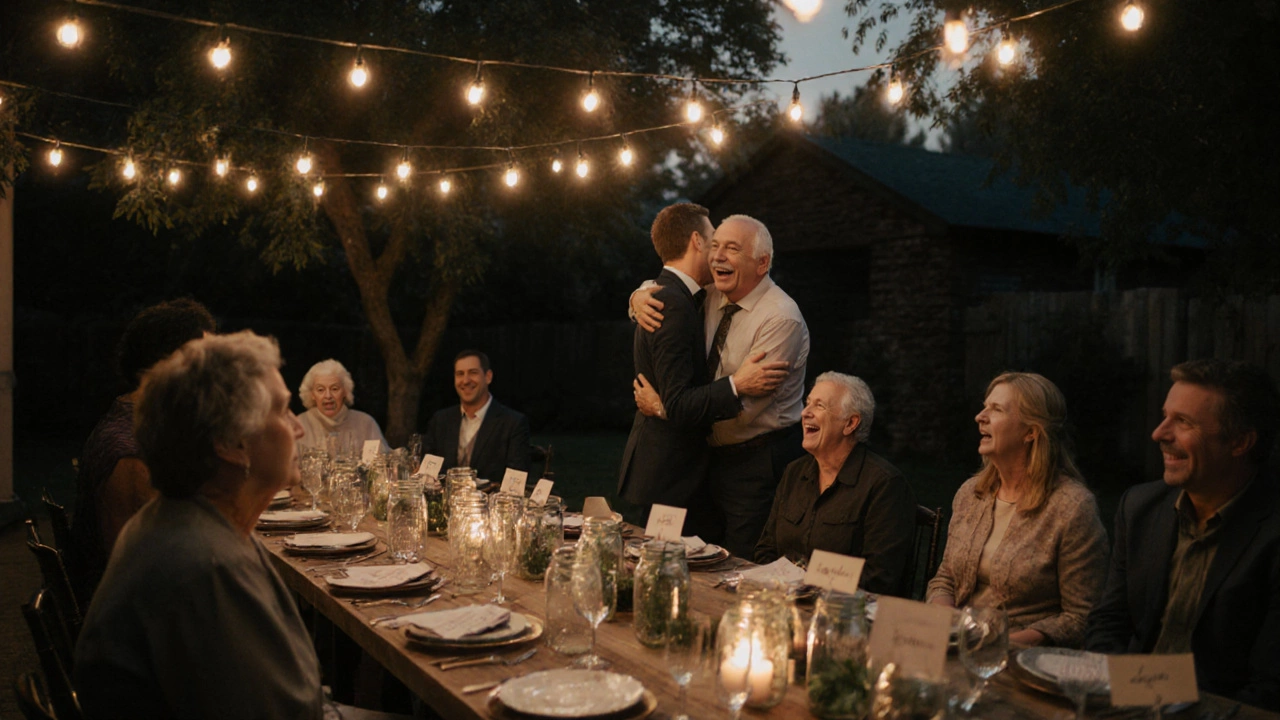Wedding Responsibility Calculator
Your Contributions
Select responsibilities based on modern wedding trends (2025 data)
Estimated Costs
Your Contribution Breakdown
Select your responsibilities to see estimated costs
When you’re planning a wedding, everyone’s focused on the couple - the dress, the vows, the first dance. But behind the scenes, the groom’s parents often carry a quiet but important load. They’re not just guests. They’re part of the team. And if you’re the father or mother of the groom, you might be wondering: what are groom's parents responsible for? It’s not about old rules. It’s about knowing what actually matters today.
Tradition vs. Reality
Old-school wedding guides say the groom’s parents pay for the rehearsal dinner, the marriage license, and sometimes the alcohol at the reception. But those rules were written in a time when families had rigid roles and weddings were less expensive. Today, most couples pay for their own wedding. Or they split costs with both sets of parents. So what’s left for the groom’s parents?
The real answer? It’s not about money. It’s about support.
Financial Contributions - What’s Expected?
There’s no law. No rulebook. But here’s what still commonly happens in Australia, the U.S., and the U.K.:
- Rehearsal dinner - This is still the most consistent responsibility. It’s usually hosted by the groom’s parents the night before the wedding. It’s a chance to thank the wedding party, close family, and out-of-town guests. Budgets vary - $1,500 to $8,000 depending on guest count and location.
- Marriage license and officiant fees - In some families, the groom’s side covers this. It’s not required, but it’s a thoughtful gesture. The license costs around $50-$100. Officiant fees can be $200-$500.
- Wedding transportation - If the groom needs a car or limo for the day, his parents often cover it. This includes getting him to the ceremony and back home.
- Accommodations for out-of-town guests - Some groom’s parents help with hotel blocks or even pay for a few close relatives’ stays, especially if they’re traveling from another state or country.
- Wedding rings - Traditionally, the groom buys the bride’s ring. But the bride’s family often pays for the groom’s ring. That’s changing fast. Many couples now buy both rings together. If the groom’s parents want to contribute, they might help with the cost - especially if it’s a custom or high-end piece.
Here’s the truth: if you’re not paying for any of this, that’s fine. Many couples today handle their own budgets. But if you’re able to help, these are the areas where your contribution is most appreciated.
Non-Money Responsibilities - The Real Work
Money gets all the attention. But the real job of the groom’s parents is emotional labor.
- Helping the groom prepare - Whether it’s calming his nerves before the ceremony, helping him pick his tie, or just being there to listen when he’s overwhelmed - that’s your role. You’ve raised him. You know him better than anyone.
- Being a liaison - Sometimes the bride’s parents don’t know the groom’s family well. Your job is to bridge that gap. A quick text, a coffee meeting, a polite note - it goes a long way.
- Hosting the rehearsal dinner - This isn’t just about food. It’s about creating a warm, relaxed atmosphere. You’re not just feeding people. You’re setting the tone for the wedding weekend.
- Supporting the groom’s side of the wedding party - If his best man is stressed about his speech, or his brother needs help with travel plans, you’re the one who steps in. You’re the glue.
- Being present on the day - Don’t disappear after the ceremony. Stick around. Say hello to guests. Thank people. Be the calm, smiling face that reassures everyone that everything’s okay.

What Groom’s Parents Should NOT Do
There are lines you shouldn’t cross - even if you’re paying for something.
- Don’t dictate the guest list - Unless you’re paying for the entire wedding, you don’t get to add 30 extra cousins. The couple decides who’s invited.
- Don’t micromanage the venue or decor - If you’re not footing the bill, your opinion on the centerpieces is just that - an opinion. Offer it gently, if asked.
- Don’t compare your son’s wedding to your own - Your wedding was 25 years ago. Things are different now. Let them do it their way.
- Don’t make it about you - This isn’t your day. It’s theirs. Even if you’re crying at the altar, keep the spotlight on them.
What If You Can’t Afford to Contribute?
Money isn’t love. And no one expects you to go into debt for a wedding.
If you’re on a tight budget, here’s what still matters:
- Offer to host the rehearsal dinner at your home. A potluck dinner with photos on the wall costs less than a restaurant and means more.
- Help with driving guests. Pick up the groom’s grandparents. Drop off the groomsmen. That’s more valuable than a $1,000 gift.
- Write a heartfelt letter. Read it to him privately before the ceremony. That’s the kind of thing people remember for decades.
- Volunteer to help with setup or cleanup. Bring your tools. Hang banners. Pack up chairs. You’re not just helping - you’re showing up.
Weddings aren’t about how much you spend. They’re about how much you care.

Modern Shifts: Who Pays for What Now?
Today’s weddings are a mix. Here’s what’s actually happening in 2025, based on surveys from Australian wedding planners:
| Item | Typically Paid By | Notes |
|---|---|---|
| Wedding rings | Couple (62%) | Most couples buy both rings together. Groom’s parents may help with the groom’s ring if requested. |
| Rehearsal dinner | Groom’s parents (78%) | Still the most common tradition, even among younger couples. |
| Marriage license | Couple (55%) | Often covered by the couple, but groom’s side sometimes steps in. |
| Wedding transportation | Groom’s parents (65%) | Especially common if the groom needs a car for the day. |
| Accommodations for guests | Couple (45%) | Parents may help with a few close relatives, but rarely the whole group. |
| Entire wedding | Couple (82%) | Most couples pay for the full event themselves or split with both families. |
The bottom line? The groom’s parents are no longer the primary funders. They’re the quiet anchors.
How to Talk About Money Without Awkwardness
Money talks are hard. But they’re necessary.
Start early. Don’t wait until the week before the wedding. Say something like:
"We want to help in a way that feels right for everyone. What’s on your list? What would make your life easier?"
Listen more than you speak. Don’t assume. Ask what they need. Maybe they don’t want money. Maybe they want to bake the cake. Or take photos. Or organize the playlist.
Be open. Be humble. And be ready to say, "We can’t do that - but we can do this."
Final Thought: It’s Not About the Checkbook
When your son walks down the aisle, no one will remember how much you spent. They’ll remember how you made him feel.
Did you hug him when he was nervous?
Did you show up early to help set up?
Did you laugh with his friends?
Did you let him be the groom - not your project?
That’s the real responsibility. Not the check. Not the venue. Not the rings.
It’s love. Quiet, steady, and unshakable.
Do groom’s parents have to pay for the wedding rings?
No. Traditionally, the groom buys the bride’s ring, and the bride’s family pays for the groom’s ring. But today, most couples buy both rings together. If the groom’s parents want to help, they can contribute to the groom’s ring - but it’s not expected. The key is to talk about it openly, not assume.
What if the groom’s parents can’t afford the rehearsal dinner?
You don’t need to host a fancy dinner. A backyard BBQ, a potluck at home, or even a simple restaurant meal with just the wedding party works. The point isn’t the cost - it’s the gesture. Show up. Say thank you. That’s what matters.
Should groom’s parents give a wedding gift?
It’s thoughtful, but not required. Many parents give a gift - often something personal like a photo album, a piece of jewelry, or a handwritten letter. If you’re contributing financially, the gift becomes optional. Focus on presence over presents.
Can groom’s parents help with the wedding budget even if they’re not paying for anything big?
Absolutely. Small contributions add up. Maybe you help with printing programs, drive guests to the venue, or pick up the cake. These things cost time, not money - but they’re invaluable. The couple will remember you for showing up, not for how much you spent.
What if the groom’s parents are divorced or remarried?
There’s no script. The most important thing is to work together with the couple and the other parent. If both biological parents want to be involved, they can split responsibilities - one hosts the dinner, the other helps with transportation. Step-parents are welcome to contribute too. Communication is key. Let the couple guide the roles.
